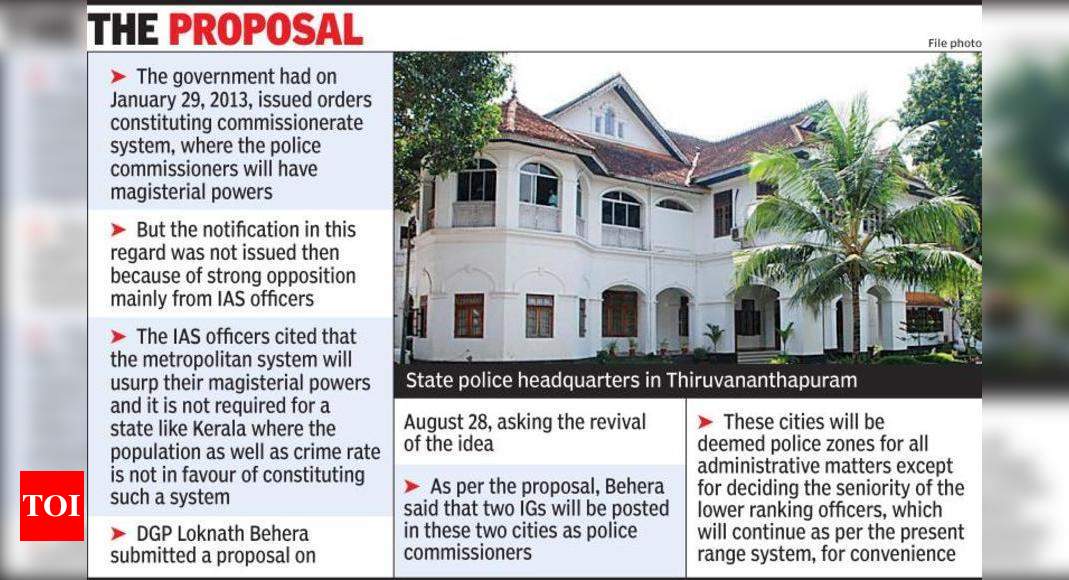Police Commissionerate system

Copyright infringement is not intended
Context:
Madhya Pradesh Chief Minister announced the implementation of a police commissionerate system in the two cities (Indore and Bhopal).
What is the ‘dual command’ system of policing that is in force across Madhya Pradesh?
- Under the dual command system, the District Magistrate and the Superintendent of Police (SP) share powers and responsibilities in a district.
- Under this structure, the DM is entrusted with issuing arrest warrants, licenses while the SP has powers and responsibilities to investigate crime and make arrests.
- The system is designed to ensure a lower concentration of power and making the police more accountable to the DM at the district level.
- Under the police commissionerate system, the powers of both policing and magistracy are concentrated with the commissioner, who is directly accountable to the state government and the state police chief.
How does the commissionerate system empower the police?
- The commissioner of police under the commissionerate system exercises the powers and duties of a District Magistrate.
- These powers are also available to any officer under the commissioner who is not below the rank of an Assistant Commissioner of Police.
- This essentially means that such police officers now have powers of preventive arrest, imposing Section 144 of the CrPC Act and also to initiate chapter proceedings which include issuing showcause notices to persons asking them to execute a bond with or without sureties for good behaviour in interest of the public.
- The police are also empowered to conduct externment proceedings and issue written orders to remove a person from their jurisdiction of the commissionerate for a maximum of two years.
Why does Madhya Pradesh intend to introduce the commissionerate system in Bhopal and Indore?
- Various committees constituted to suggest police reforms have recommended implementation of a police commissioner system in cities which have witnessed rapid urbanisation and have a population of more than 10 lakhs.
- In the 6th report of the National Police Commission, it noted that as compared to police in districts, police in commissionerate in small areas had a better account of themselves.
- It further pointed out that in urban areas, the changing dynamism and growing complexities of security threats required a swift and prompt response leaving very little time for discussion and debate, while recommending that the commissionerate system can be started in urban areas with a population of 10 lakh and above.
- The commissionerate system is already enforced in various cities in 16 states of the country.

https://indianexpress.com/article/explained/explained-commissionerate-system-bhopal-indore-police-madhya-pradesh-7645575/



1.png)
